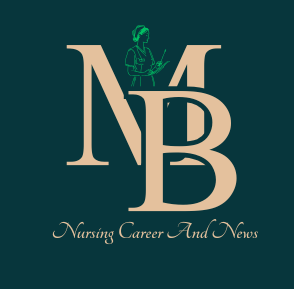Empowering Nurses: Transforming Healthcare for a Better Future
Overview
Around the world, nurses are essential to healthcare systems. They frequently act as patients’ initial point of contact, offering both clinical knowledge and sympathetic treatment. However, despite their vital function, nurses often encounter obstacles that restrict their abilities. More than just a slogan, “empowering nurses” is a critical first step in transforming healthcare as we know it. The entire nursing profession may change if nurses are given the resources, tools, and independence they require.

Nurses’ Function in Contemporary Healthcare
Medication administration and vital sign monitoring are only two of the many tasks performed by nurses. They make sure the healthcare system functions properly by being advocates, educators, and innovators. Nurses frequently serve as the glue that holds healthcare systems together by coordinating care between doctors, patients, and other medical personnel.
Beyond Patient Care: Nurses have a variety of responsibilities outside of the hospital bedside.
teaching families and patients about medical conditions.
promoting the needs and rights of patients.
Monitoring and executing community health initiatives is crucial.
By carrying out these diverse duties, nurses contribute significantly to the enhancement of general public health outcomes.
Nursing Empowerment: What Is It?
Giving nurses the power, tools, and self-assurance to make important decisions in their positions is known as nursing empowerment. It includes developing a supportive work environment, improving decision-making skills, and advancing one’s career.
A Historical Viewpoint
In the past, nurses frequently worked under strict hierarchical structures that limited their ability to influence decisions. But as healthcare changes, so does the recognition of the value of nurse empowerment.
Advantages of Self-Empowerment
Nurses with empowerment:
Give better care.
Experience reduced burnout rates and increased job satisfaction.
Encourage creative approaches to patient treatment.
The Difficulties Nurses Face
Nurses have a vital function, yet they confront several obstacles that prevent them from being empowered. The first step to getting past these obstacles is realizing what they are.
High ratios of patients to nurses
The quality of care and job satisfaction are compromised when nurses’ schedules are too full to allow for professional growth or patient interaction.
Mental Health and Burnout
Workplace stress, emotional expectations, and long shifts all contribute to burnout, a widespread problem in nursing that affects mental health.
Not Being Recognized
Feelings of disempowerment are further exacerbated by the fact that many nurses report feeling underappreciated and left out of important decisions impacting patient care.
Empowerment’s Effect on the Transformation of Healthcare
The advantages of empowerment for nurses go much beyond personal job happiness. Patients, providers, and the healthcare sector at large can all gain from empowered nurses’ ability to significantly alter healthcare systems.
Improved Results for Patients
Empowered nurses provide better patient care, which improves recovery times and satisfaction levels, according to studies.
Contentment at Work
Higher job satisfaction among empowered nurses lowers turnover rates and fosters long-term stability in healthcare teams.
Enhanced Innovation in Medical Procedures
Nurses are more inclined to innovate when they have the freedom and means to make their own judgments. The effectiveness and efficiency of healthcare systems are improved by empowered nurses’ innovative ideas, which range from creating new care models to streamlining operations.
Methods for Increasing Nurse Empowerment
A multifaceted strategy including leadership, workplace reforms, and education is needed to empower nurses. Here are a few practical tactics:
Education and Professional Development
To stay up to date with medical breakthroughs, nurses must pursue ongoing education.
providing grants and scholarships for more education.
holding frequent training sessions and workshops.
promoting specialization in desired fields.
Education not only increases nurses’ self-esteem but also raises the standard of patient care.
Possibilities for Leadership and Mentoring
Empowerment requires establishing avenues for nurses to take on leadership positions. Healthcare institutions and hospitals can:

Create mentorship programs that match aspiring nurses with seasoned leaders.
Provide leadership development programs specifically designed for healthcare environments.
Advance nurses into leadership roles so they can impact both practice and policy.
Advocacy for Policies
One essential component of empowerment is promoting laws that enhance working conditions. These consist of:
ensuring equitable ratios of nurses to patients.
offering assistance for mental wellness.
improving safety protocols at work.
Technology’s Contribution to Nursing Empowerment
It is impossible to overestimate the impact of technology on nursing empowerment, as it is revolutionizing the healthcare industry.
Using Digital Tools to Improve Patient Care
Nurses can concentrate more on patient care because of technologies like electronic health records (EHRs), which simplify administrative duties. AI-powered diagnostic tools and wearable health monitors also give nurses access to real-time actionable data.
Teaching Advanced Medical Technologies to Nurses
Frequent training sessions on state-of-the-art medical software and equipment guarantee that nurses are comfortable utilizing them. Technology proficiency enables nurses to provide higher-quality care and make better decisions.
Closing the Skills Gap
Technological developments in telehealth and remote monitoring enable nurses to provide care to patients in underprivileged areas, overcoming skills and geographic barriers.
The Strength of Teamwork
The key to successful healthcare is collaboration. Fostering collaboration among medical experts is a key component of empowering nurses.
Multidisciplinary Collaboration
Nurses can collaborate with physicians, therapists, and other specialists by promoting multidisciplinary teamwork. This raises spirits and guarantees comprehensive patient care.
Developing Solid Nurse-Physician Bonds
A more unified healthcare environment is produced when nurses and doctors treat each other with respect and communicate openly. These connections can be strengthened via programs like collaborative decision-making forums and team-building activities.
Establishing a Mutually Respectful Culture
A supportive work environment that encourages empowerment is created by honoring nurses’ viewpoints and appreciating their involvement in choices about patient care.
Case Studies: Nurse Empowerment Success Stories
Examples from real life demonstrate how empowering nurses may have a profoundly positive effect.
First Case Study: Magnet Medical Facilities
Magnet hospitals, which are renowned for their superior nursing practices, demonstrate how empowerment enhances results. These organizations place a high value on nurse-led research, cooperative decision-making, and professional development.
Case Study 2: International Projects
Initiatives to empower and train nurses have significantly improved healthcare delivery in nations like Rwanda, especially in rural areas. These initiatives show how nurses can be empowered to overcome structural obstacles.
Nursing Leadership
A key component of nursing empowerment is leadership. Effective nurse leaders motivate their staff, push for reform, and stimulate creativity in the medical field.
Qualities of Successful Nurse Leaders
Proficient nurse leaders possess attributes that enable their teams:
Empathy: Being aware of the difficulties their teammates encounter.
Communication Skills: Listening to issues and expressing thoughts clearly.
Adaptability: Resiliently navigating the ever-changing landscape of healthcare.
Vision: Clearly defining objectives and inspiring groups to reach them.
Leadership Programs and Their Effects Nursing-specific leadership programs aid in the development of these vital abilities. Programs such as mentorship programs or the Clinical Nurse Leader (CNL) certification develop self-assured leaders with the ability to impact healthcare policies and practices.
Motivating Change Through Leadership
When nurses assume leadership positions, they contribute a distinct viewpoint based on their expertise in providing patient care. This enables them to spearhead projects that enhance personnel welfare and healthcare delivery, promoting an inclusive culture of empowerment.
Nursing Empowerment’s Future
With more organizations and legislators realizing the value of nursing empowerment, the future appears bright. The healthcare sector may continue to provide nurses with transformative assistance by tackling present issues and emphasizing innovation.
Forecasts for the Upcoming Ten Years
Greater autonomy: When it comes to clinical decision-making, nurses will have more power.
Technology Integration: Nurses’ jobs will be improved by the widespread use of cutting-edge instruments like artificial intelligence and robots.
Specialized Roles: There will be an increasing need for specialized nursing positions in fields such as oncology and geriatrics.
The Function of Advocacy and Policy
Governments and medical institutions need to:
Put in place regulations that give mental health and nurse safety first priority.
Programs for professional growth should be funded.
Establish nationwide guidelines for the ideal ratios of nurses to patients.
Creating a Model That Is Sustainable
A long-term strategy for nurse empowerment calls for consistent funding for leadership development, education, and technology. To keep this momentum going, cooperation across healthcare stakeholders is essential.
In conclusion
Empowering nurses is not only a goal; it is a key factor in the transformation of healthcare. Better patient outcomes, creative approaches to treatment, and a more robust healthcare system are all results of empowered nurses. We can build a future where patients and healthcare professionals prosper by tackling the issues that nurses encounter and giving them the resources and independence they require.
Recognizing nurses’ worth is only one aspect of empowering them; another is fostering an atmosphere that allows them to reach their greatest potential. Every stakeholder is involved in this change, from legislators to hospital executives. By working together, we can make sure that nurses remain the foundation of a healthcare system that places a high value on compassion, innovation, and quality.
FAQ 1. What is meant by nurse empowerment?
Giving nurses the power, tools, and chances to make wise choices, develop their abilities, and make a significant contribution to patient care and medical advancements is known as nurse empowerment.
- In what ways does nurse empowerment enhance medical results?
Higher levels of satisfaction, faster recovery times, and better patient care are all results of empowered nurses’ increased self-assurance and effectiveness in their jobs. Additionally, it lowers nurse turnover, guaranteeing a steady and competent workforce. - What are the main obstacles to the empowerment of nurses?
High patient-to-nurse ratios, a lack of decision-making power, stress at work, and limited access to opportunities for professional growth are some of the main obstacles. - How may medical institutions encourage the empowerment of nurses?
Medical facilities are able to:
Provide continuing instruction and training.
Provide opportunity for leadership.
Encourage equitable employment practices, such as reasonable workloads and mental health assistance.
- How can nurses be empowered by technology?
By providing real-time patient data, simplifying administrative procedures, and giving cutting-edge tools like telehealth platforms, technology improves nurses’ abilities. Nurses who have the right training in these technologies are even more equipped to succeed in their positions.


5 thoughts on “Empowering Nurses: Transforming Healthcare for a Better Future”